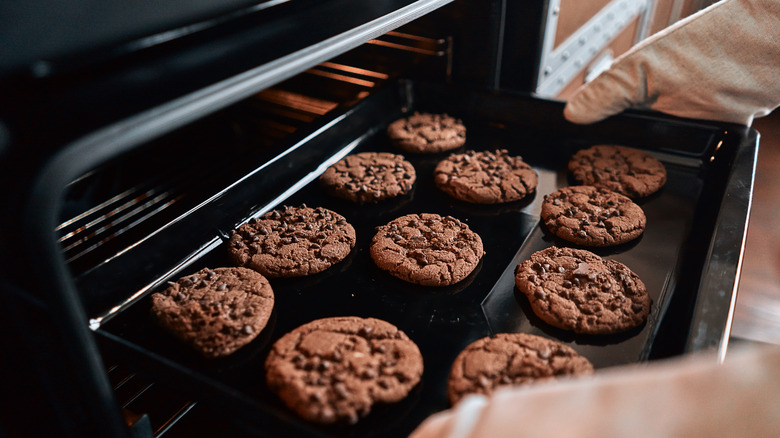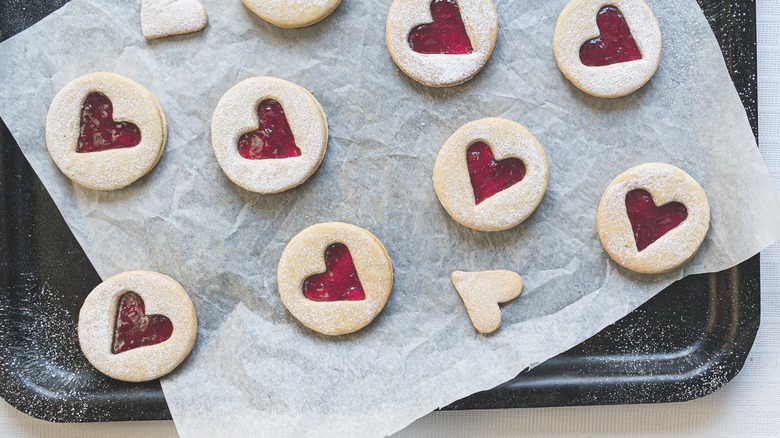Why You Should Never Grease Your Cookie Sheet
Few things are as disappointing as pulling a limp batch of chocolate chip cookies out of the oven. Not long after, you find yourself absently revisiting the recipe's instructions, staring enviously at photos of fluffy cookies, and wondering what went wrong in your kitchen. Whether you have your heart set on a warm batch of red velvet cookies or if you're trying to put together gooey lemon treats for tonight's dessert, there's one element you might be neglecting: the cookie pan.
According to Leaf, the kind of cookie sheet you use can dramatically impact the texture of the cookies you're trying to create. If you're baking anything on a pan, it's important to know when to butter up and when to leave the extra grease to the side. We hate to break it to you, but those weak cookies might have been saved had you left the butter on the shelf in the fridge.
A simple approach to cookie success
Unless the actual cookie recipe tells you to grease the pan, leave it alone, warns Eat This, Not That!, or you'll run the risk of burning your baked goods. According to Worthy Recipe, the extra butter you've been spreading onto the pan can result in less rise of the actual cookie. To set yourself up for a more reliable baking experience, use parchment paper, advises Muddy's Bakeshop. If you don't have parchment paper, many cookie sheets are already non-stick, and the fat from your cookie dough will make a charred, sticky affair unlikely. For those inevitable moments of culinary doubt, Martha Stewart suggests silicone baking mats, and if a recipe does call for a greased baking sheet, coat the pan lightly by gliding a butter wrapper over the metal instead of slathering on thick, buttery layers. When you're ready to try your baking skills again, there are many cookie recipes your family is sure to enjoy.

